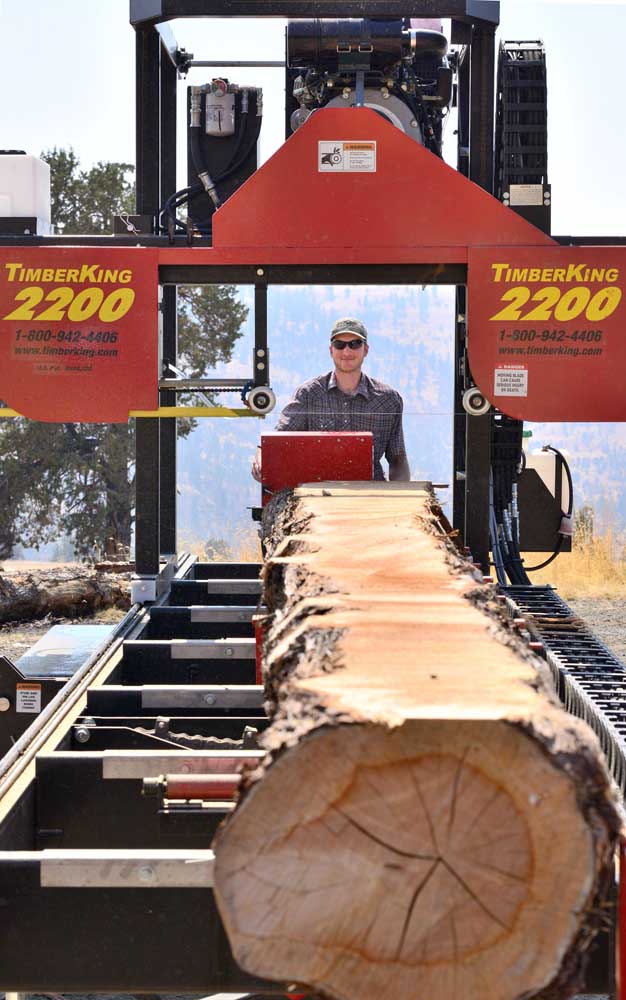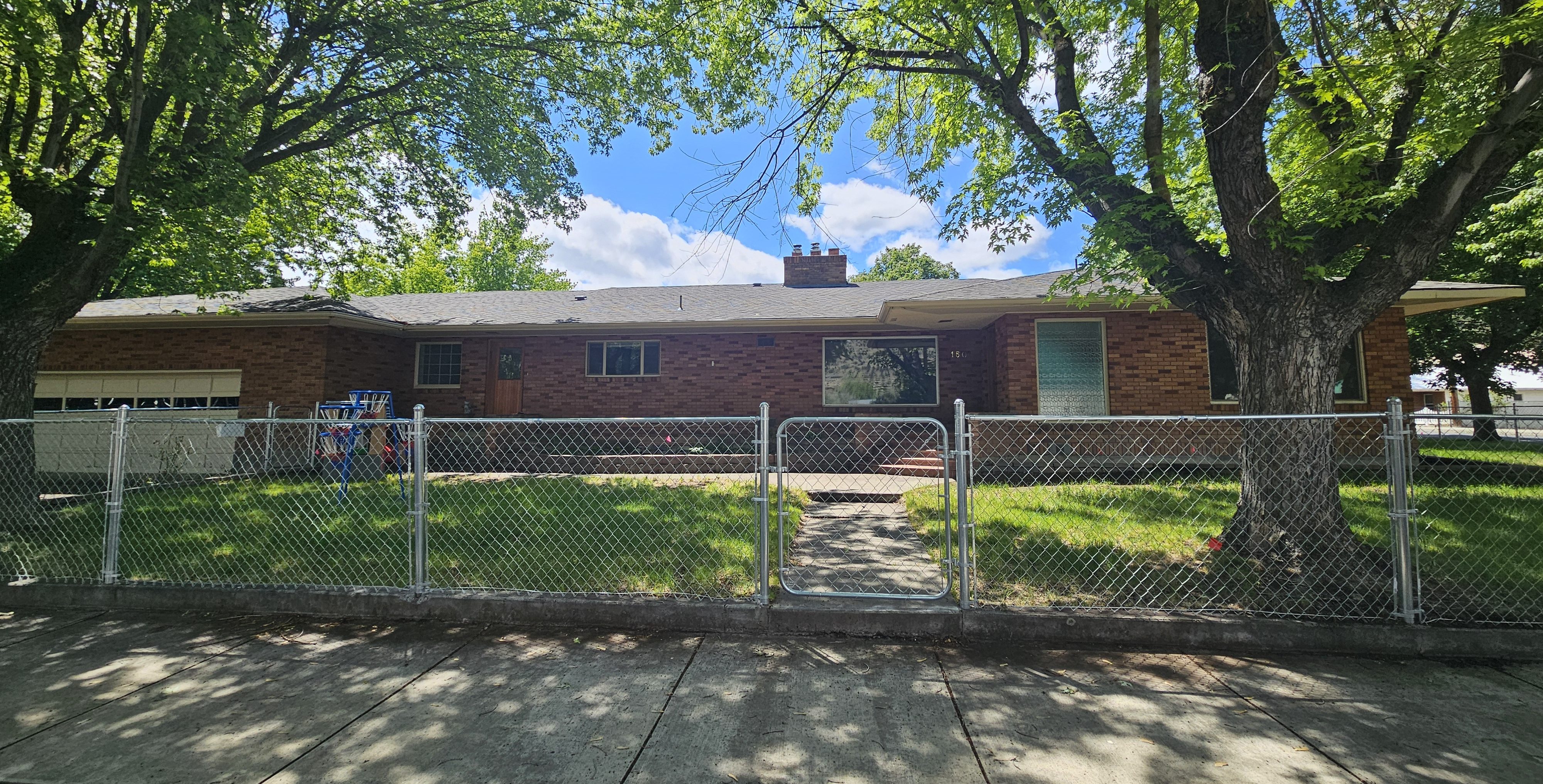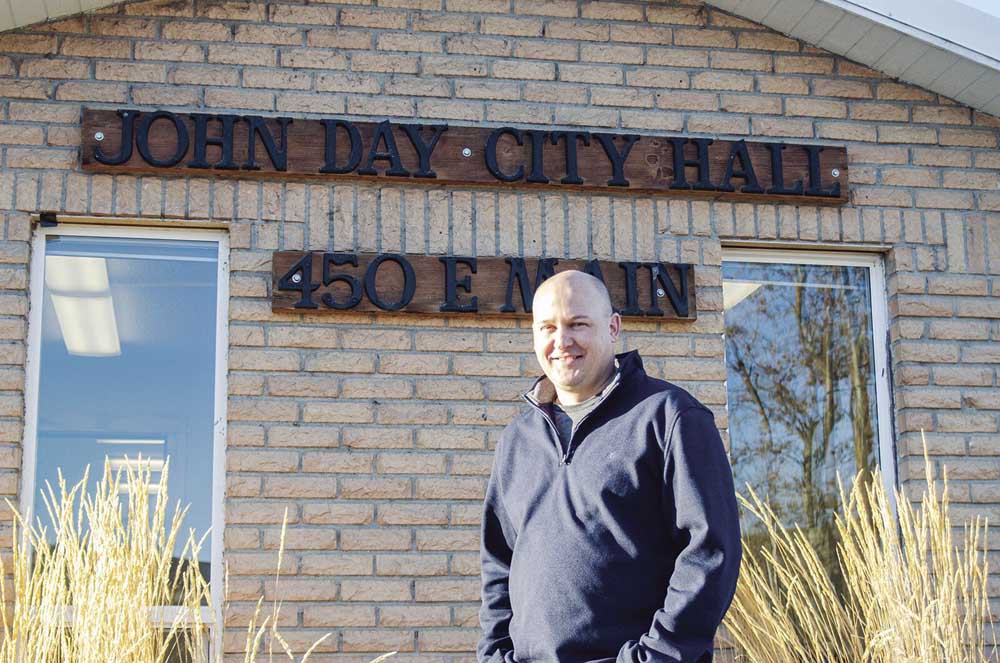Ritter land group receives big grant
Published 11:05 am Friday, December 1, 2017

- Caleb Morris, rancher and Ritter Land Management Team board member, runs the first log through the new mill in Ritter.
The Ritter Land Management Team in Long Creek recently received a $135,000 grant from the Meyer Memorial Trust with the goal of restoring ecosystem health and creating jobs in the John Day Basin.
Patti Hudson, the group’s executive director, said the money will be used for staffing, maintaining a website and sustaining the group’s operations for the next three years.
“It was a competitive grant, and it was fantastic that we got it,” she said, noting that the trust sent people to look over the group’s operation.
Formed in 2013 as a nonprofit, the Ritter Land Management Team is a collaboration between private landowners in the Ritter and Lower Middle Fork John Day River sub-basin. Hudson said 30 of the 60 landowners in the 105,653-acre management area are active members of the group.
Using $72,000 from Business Oregon and $10,000 from the Oregon Community Foundation, the group acquired a portable sawmill and a telehandler this fall to turn western juniper trees into a marketable product.
The native trees have become an invasive species as they’ve spread across 9 million acres of Eastern Oregon rangelands, using up water in the dry landscape and crowding out native plants needed by wildlife and livestock.
Sustainable Northwest Wood, which has a lumber store in Portland, has already purchased a truckload of 4-by-6 and 6-by-6 juniper timbers produced by the Ritter mill, Hudson said. Juniper is a popular wood for landscaping timbers, she said.
“We don’t have any employees at the sawmill yet, but we expect to hire two in the next six months and four to six more in the next two to three years,” she said.
The group identified the need to ramp up the pace and scale of juniper removal in the area in an October 2015 Strategic Action Plan. They then obtained a grant from the state’s Western Juniper Industry Fund to pay for a feasibility study to determine if sufficient supply and demand existed to sustain a sawmill in Ritter.
According to the April 2017 report by TSS Consultants, a renewable energy, natural resource management and financial consulting firm in Sacramento, California, satellite imagery work by Portland State University was combined with slope analysis to determine that 66,871 green tons of saw logs and 57,318 green tons of harvest residuals could be economically produced from the area’s juniper trees.
The report suggested a 12- to 24-month harvest lead time would be helpful, providing time for the fallen logs to dry. Hudson said area ranchers have been dropping junipers that are now ready to mill. Instead of burning the entire tree, the trunk will be milled and the remaining limbs will be burned, Hudson said.
If 450 acres are treated annually, 105 truckloads of saw logs and 90 truckloads of fiber could be produced annually for the next 21 years, the report stated.
TSS Consultants also assessed the market for juniper products. Juniper is harder than ponderosa pine and has more nail strength than Douglas fir and ponderosa pine, and juniper “is considered splendid for machining and bending and is excellent for gluing and finishing,” the report said.
With the closure of biomass power plants at Heppner and Prairie City, there is currently no local market for western juniper biomass chips, the report said. But juniper’s resistance to rotting is especially important. A 1999 Oregon State University Forest Research Laboratory report showed that an untreated western juniper fencepost could last more than 30 years — longer than any other western tree species.
“This characteristic makes (western juniper) superb for outdoor applications such as posts, siding, decking and patio furniture,” TSS Consultants said.
For the Ritter group, as it breaks into the wood-processing business, producing landscape timbers is a good start. But the report recommended that the group should diversify into two-inch boards, which “are in high demand today.” Hudson said rough-cut 2-by-6 juniper is sometimes installed as flooring and finished in place by sanding.
Established in 1982, the Memorial Meyer Trust is among the largest private foundations in Oregon, with assets totaling about $750 million. The trust has awarded grants and program-related investments totaling more than $761 million to more than 3,600 organizations since it was founded. The trust focuses its work in Oregon on housing, education, the environment and building communities.





